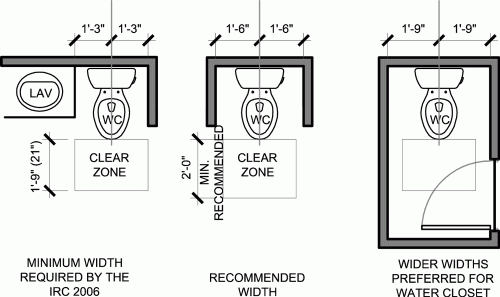Here’s a question I received today from an Architecture Student finishing up their Bachelor’s Degree and looking at Graduate programs:
“Hello, I will be a graduate of Montana State University this Spring in their Architecture program. I just recently was accepted into the University of Michigan’s (Taubman College) MA in Architecture program. This program is a 2 yr. program (potentially a 3yr) program that will cost in the range of $65-70,000/yr. I am just trying to reach out to find out a little information regarding the cost/benefit ratio. I have also been accepted into the graduate program at Montana State as well as the University of Washington. Of course, if I were to stay up in Montana, I know the staff there and would have a greater chance of getting a TA type of position to help offset some of the attendance costs. I guess what I’m asking is, in your opinion, would a degree from MI make that much of a difference in my job opportunities post graduation? Also, would a starting salary post graduation be able to sustain the additional debt I would take on? I appreciate any feedback that you might be able to provide me.”
Here is my reply:
Happy to help! There are a number of factors that go into this decision. Part of the question lies in simple economics where the other part of the question is about academic and professional development.
.
First of all, when reviewing resumes for jobs, we rarely (if ever) consider the institution where the degree was earned as a factor in ranking candidates…provided that the institution is accredited (that’s really important). Michigan, Montana and Washington are all accredited, so by that measure, they all would satisfy that requirement as far as we’re concerned. Please note though that is our methodology – I can’t speak for others in the profession and there are no doubt some firm owners out there that may buy into the whole “where you graduated from” thing. But I believe that has more to do with their own hang-ups than anything else because accreditation sets a high standard, so any accredited school will ensure that standard has been met.
.
From a professional point of view, there’s no question that exposure to different faculty and different design environments would enhance one’s academic pursuit in Architecture. And there may very well be more internship opportunities for someone earning their masters near a major city than in a remote area. Some schools actually build this into their programs, which is great. This is important, because we will rank job experience much higher than things like coursework or GPA in our selection process. This is important to consider, because whatever the decision is, getting those internship opportunities will have a significant impact. Portfolio is important as well, and that of course can be developed anywhere because it is the sole realm of the creative and talented individual. However, a starting position in Architecture at any firm will be on the production team and not likely on the design team until a great deal of real world experience is obtained. So the more one can demonstrate proficiency in production, the better the odds are of getting that first job. This is why experience is so important. And if you have any opportunity to gain on-site building construction experience of any kind, take it! Even if it’s hard labor or construction cleaning. The best way to understand buildings is to touch them.
.
Finally, and this is the not so great news, starting salaries for a recent architecture grad are not terribly high. This is largely because of the law of supply and demand. If I publish a job ad for a recent Masters grad in Architecture, I will easily get 2-3 times more applicants than when I post a job for a recent Bachelors grad in engineering. So, reasonable expectations for that first position would be somewhere between the high 30’s and low 40’s. These numbers are corroborated by the AIA salary survey for the Rocky Mountain region (note that a job in, say, New York would pay higher than a job in Denver). This makes it tough to pay off student debt for a masters degree at any institution, and is frankly a real problem in our profession because it can be a major barrier to entry. Consider diversifying your experience and academic background. Having additional skills in complementary disciplines like engineering or business makes you more valueable, which in turn, increases your options as well as your compensation. Bottom line – find a way to stand out.
.
A major driver for starting salary again is relevant work experience. So, if I have a candidate that has a masters and interned every Summer and/or worked part time during school at a design or construction firm, that person would not only be more likely to get the job, but starting salary would be on the higher end as well. The good news here is that people that are passionate about the work and are awesome at what they do rise very quickly and by the time they are ready for licensure, could easily double that starting salary. Those that are satisfied just doing their job ascend much more slowly or not at all. I’d say that probably rings true in any profession.
.
I hope that helps!









